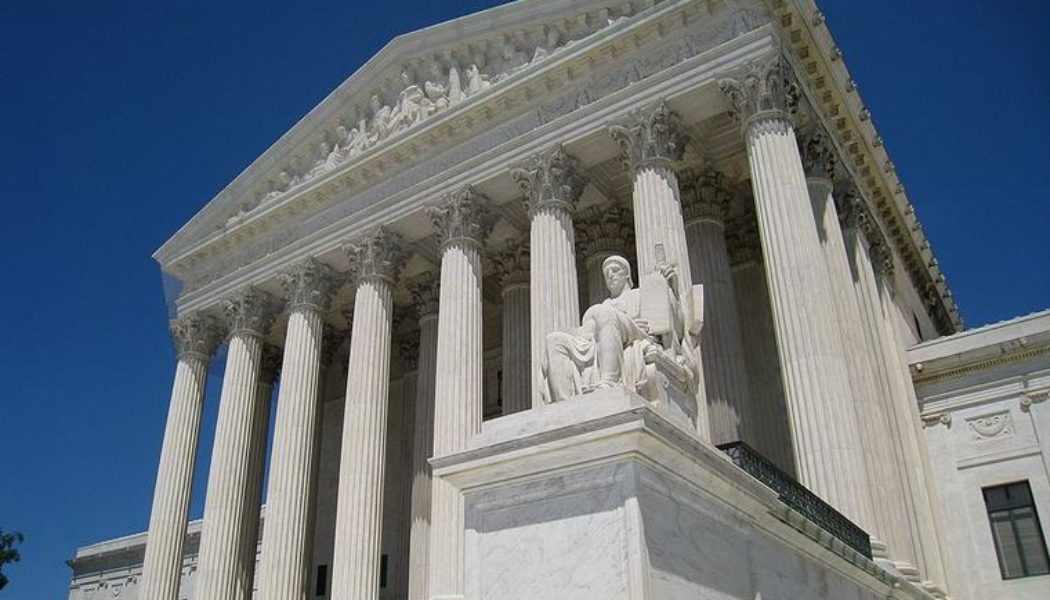
COMMENTARY: The Supreme Court has an opportunity to further protect vulnerable children and safeguard our Constitution from infiltration by today’s progressive ideologies.
The Supreme Court will hear oral argument Wednesday in U.S. v. Skrmetti, one of the most consequential cases under review by the Court this term. Here is a quick primer on what the Skrmetti case is all about:
In spring 2023, shortly after Tennessee lawmakers passed SB1, a law that prohibits all medical treatments intended to allow “a minor to identify with, or live as, a purported identity inconsistent with the minor’s sex” or to treat “purported discomfort or distress from a discordance between the minor’s sex and asserted identity.” Before SB1 went into effect, three families and a doctor challenged the law. Their complaint made several claims, including that it violates the 14th Amendment’s Equal Protection Clause.
The Biden administration intervened in the case in support of the plaintiffs. The trial court issued a preliminary injunction, permitting minors in Tennessee access to cross-sex hormones and puberty blockers, but keeping in place the ban on surgeries.
Tennessee appealed the injunction to the 6th Circuit Court of Appeals. That court reversed the lower court, effectively reinstating the law (as well as a similar ban in Kentucky).
Both the plaintiffs and the Biden administration petitioned the Supreme Court to review their case. The Court granted the administration’s request. The Court’s review is limited to a simple question: Does SB1 violate the Equal Protection Clause of the 14th Amendment?
In papers filed with the Court, the Biden administration argues that SB1 violates the 14th Amendment’s guarantee of equal protection under the law by classifying minors based on sex and discriminating based on transgender status.
“An adolescent assigned female at birth cannot receive puberty blockers or testosterone to live and present as a male, but an adolescent assigned male at birth can. And vice versa, an adolescent assigned male at birth cannot receive puberty blockers or estrogen to live and present as a female, but an adolescent assigned female at birth can,” observes Solicitor General Elizabeth Prelogar on behalf of the Biden administration. The brief continues, making a wild assertion that the Tennessee law amounts to “sex discrimination.”
Ever the ally of progressive causes like gender ideology, the Biden brief relies heavily on discredited medical “evidence,” particularly suspect guidelines put out by the World Professional Association of Transgender Health (WPATH). Similarly audacious is the Biden brief’s “legal sleight-of-hand” in applying the Court’s reasoning in a recent decision — which said that sex discrimination under Title VII, the federal anti-discrimination in employment law, includes claims based on sexual orientation and gender identity — to claims under the 14th Amendment.
Tennessee sensibly responds by explaining that the state legislature studied “systemic reviews, took stock of tightened restrictions in Europe and heard firsthand accounts of regret and harm from detransitioners” before passing SB1. The state adds that “many of the European countries that pioneered gender transitioning in minors reversed course” and that “health authorities in Sweden, Finland, Norway, and the United Kingdom have all concluded that these interventions pose significant risks with unproven benefits.”
As to the legal implications of SB1, the state explains that [the law] “includes no sex classification. It draws a line between minors seeking drugs for gender transition and minors seeking drugs for other medical purposes. And boys and girls fall on both sides of that line.”
The Court’s review does not include the claim of the parents who filed the lawsuit that the 14th Amendment’s due-process guarantee protects “the fundamental right of parents to make decisions concerning the care, custody, and control of their children” and that this right includes “the right to seek and to follow medical advice to protect the health and well-being of their minor children.” Nonetheless, it’s worth noting that the 6th Circuit dismissed this argument outright. Parents usually “know what’s best for their children,” observed the panel majority, but “becoming a parent does not create a right to reject democratically enacted laws.” Tennessee adds an additional and very sensible argument: “Even adults lack a substantive-due-process right to demand access to a particular medication.”
Public opinion is overwhelmingly opposed to medical interventions on gender-dysphoric children. Consistent with this public concern, 26 states have enacted limits on the medicalization of gender ideology when it comes to minors and President-elect Trump has announced a multifaceted plan to “stop the chemical, physical, and emotional mutilation of our youth because no serious country should be telling its children that they were born with the wrong gender.”
Clearly out of step with the will of the American people, the Biden administration and their progressive allies continue to seek legal “cover.” So far, they have not been all that successful. Much like the 6th Circuit’s decision to uphold Tennessee’s ban, the 11th Circuit upheld Alabama’s ban.
This past spring, the Supreme Court allowed Idaho’s ban to go into effect except as it applies to objecting plaintiffs. A ruling by the Supreme Court in Skrmetti that vindicates Tennessee’s sensible law will go a long way to protect vulnerable children and safeguard our Constitution from infiltration by today’s progressive ideologies.




